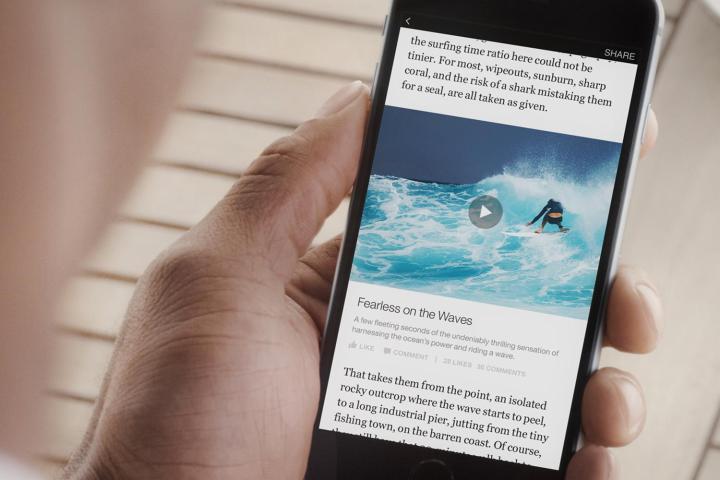
Arriving on the scene in 2011, CrowdTangle has become an indispensable tracking tool for media outlets. Its real-time dashboards, custom notifications, and personalized visualizations help publishers compare their social leverage with their competitors’ and discover trending content. In its own words: “Hundreds of newsrooms and thousands of journalists use the tool every day.”
A message on the CrowdTangle website claims its team is now joining Facebook. On the surface, it could be speculated that the social network simply acquired the company to boost the analytics tools it provides to Pages and Instant Articles publishers. But that ignores the fact that CrowdTangle deals with more than just Facebook insights. The platform also allows users to track Twitter, Reddit, YouTube, and Instagram.

Despite claiming it will be business as usual for CrowdTangle going forward, the takeover has some concerned about its implications for the way the platform deals with its parent company’s data.
Reporters including BuzzFeed’s Alex Kantrowitz and the New York Times’ John Herrman have utilized the tool to track the spread of fake news stories on Facebook, notes Mashable.
The company’s failure to tackle misinformation on its flagship social network has led to much criticism in the wake of the election. For its part, Facebook claims the notion that hoaxes or fabricated stories on its platform had a hand in swaying the outcome of the presidential election is, to put it simply, bonkers.
“Personally I think the idea that fake news on Facebook, which is a very small amount of the content, influenced the election in any way … is a pretty crazy idea,” said
In light of its new acquisition, we can assume Facebook may use CrowdTangle to stamp out fake news, spam, and click-bait on its platform. It could also assist the company in surfacing more relevant (or “newsworthy”) items on the News Feed, as it promised to do in October. Curating news in this manner will inevitably draw more of those media comparisons that evidently irk Facebook’s management.
It is easier to accept that Facebook (as a large company) builds technology products, including hardware, that primarily fall within the connectivity space. On the other hand, when it comes to its flagship social network, it is muddying the waters courtesy of its recent updates and acquisitions.
Editors' Recommendations
- Meta already verified me to influence elections — so why do I have to pay for a checkmark?
- When is the best time to post on Facebook?
- Elon Musk hints that he could start his own social media platform
- Facebook’s redesign of Groups borrows from a popular, younger rival
- The new ways Meta will pay you to make content for Facebook and Instagram

